A Season of Progress in the First Suffolk District
With the holidays approaching, we want to share what we have accomplished and the work that lies ahead for the First Suffolk District. We have attended more than 180 community and civic meetings across the district. At the State House, we participated in 30 Senate sessions and committee hearings, chairing 11. We have also testified on or acted upon 84 bills at the committee level.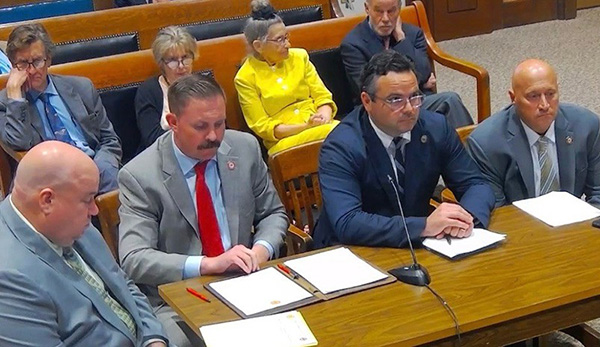
Consumer Protection & Privacy Rights
In July, we advanced the Debt Collection Fairness Act, which lowers the interest rate on consumer debt from 12 percent to 3 percent, protects wages and child support from garnishment, and limits debt collection lawsuits to a five-year window, helping families remain financially stable when life gets tough.
Additionally, the Legislature passed three historic updates to the Massachusetts General Laws, including An Act Dignifying Individuals with Disabilities, which updates state statutes to reflect modern, person-first language and policies affecting people with varying abilities.
The Data Privacy Act gives Massachusetts residents new rights to control how their personal data is collected and used, with special protections for minors and sensitive information such as health records and location data.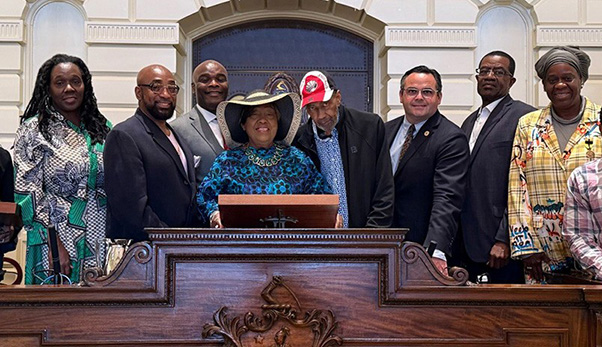
September brought important updates to Nicky’s Law, expanding protections for people with intellectual and developmental disabilities in day habilitation programs. We also legalized fentanyl test strips, giving communities a practical tool to prevent overdoses, and provided targeted funding to hospitals and community health centers to ensure vulnerable residents continue to receive care.
We also passed legislation modernizing oversight of the Commonwealth’s cannabis industry. The Cannabis Control Commission was restructured to operate more efficiently, and licensing rules were updated to support consumers and small businesses. Recreational possession limits were responsibly increased, and barriers for smaller operators in the medical market were removed, reflecting a mature and evolving industry that better meets the needs of residents and entrepreneurs alike.
Investing in Our Commonwealth Responsibly
Over the summer, we delivered critical funding to communities through the Chapter 90 bill, providing $1.2 billion for local roads and bridges, including a 50 percent increase in aid to cities and towns.
The Supplemental Budget provided $259 million in midyear funding to support ongoing state priorities and address urgent needs across Massachusetts. This funding includes critical support for emergency medical services, helping first responders and hospitals manage rising costs and respond to crises. It also strengthens the Healthy Incentives Program, which helps residents access fresh, healthy food while supporting local farmers.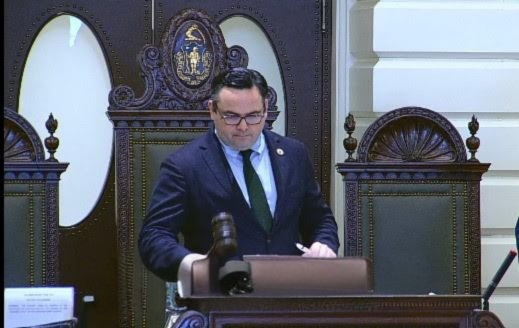
The FY2026 budget modernizes public assistance by upgrading technology for Department of Transitional Assistance benefits, including converting to chip cards to make programs more secure and efficient. By responsibly allocating these resources, the Supplemental Budget ensures that essential services continue reaching the people who need them most while maintaining fiscal accountability.
As part of finishing strong before the holiday recess, we also passed the closeout supplemental budget for Fiscal Year 2025. This bill funded MassHealth, hospitals, and reproductive care, ensured students at public colleges and universities received financial aid, added support for universal school meals, and improved access to SNAP benefits. It also directed resources to public safety and transportation needs ahead of the 2026 World Cup and strengthened oversight of former state institutions where residents with disabilities had suffered abuse.
Finally, the Legislature approved resolutions rescinding all previous Massachusetts applications for a national Article V Constitutional Convention. This step ensures that outdated calls from decades past cannot be used to push unpredictable changes to the Constitution, reaffirming that decisions should reflect the will of today’s elected officials and the people they represent.
Public Health & Safety
The Move Over Law was updated to protect utility and roadside workers, making our streets safer for everyone.
We also passed the “Blue Envelope Act,” which informs law enforcement personnel on how to approach and communicate more effectively with individuals with autism during traffic stops.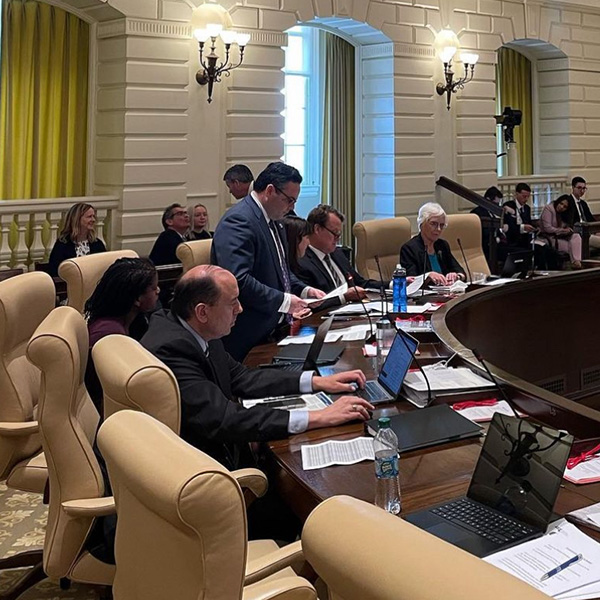
Over the past four years, Boston has experienced more than 1,000 overdose deaths. These are not just numbers; they represent parents, children, and siblings lost far too soon. Residents across the First Suffolk District have shared their concerns about discarded needles and the impact of the opioid crisis in their neighborhoods.
We have stood firmly against proposals for safe injection sites. At this inflection point in the crisis, they risk accelerating drug trafficking, increasing human exploitation, and compounding gun violence. Enabling facilities that encourage illicit behavior is not progress. We need solutions that actually help people recover.
Critical Interventions
That is why we are working to advance S.1042, An Act Relative to Life-Saving Treatment. This legislation strengthens continuity of care for people struggling with substance use disorders. It ensures evaluation after overdose, expands remote court access, and provides judicial oversight before early discharge from treatment. Evidence shows that sustained treatment leads to fewer hospitalizations, stronger recovery, and better long-term outcomes.
We are also backing legislation to expand physician assistants’ authority under Sections 12 and 35 of public health law, giving medical professionals the ability to intervene quickly when urgent treatment is needed. Both measures aim to keep people in care longer and give recovery a real chance to take hold.
To further protect those serving the public, we passed legislation expanding assault-and-battery protections to transit workers, including those employed by private contractors like commuter rail operators. The law clarifies that projecting bodily fluids counts as assault and imposes meaningful penalties on offenders. These protections recognize the daily risks transit employees face and ensure accountability for anyone who harms them.
With the state of public education a top concern, the Senate recently passed S.2561, An Act to promote student learning and mental health. This requires all public school districts to adopt cell phone-free school policies by fall 2026. This key intervention will allow our teachers to do what they do best and also allow our school children to focus on being the best they can be in the classroom.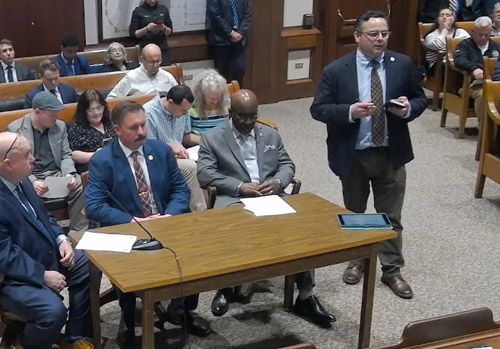
Constituent Services
Since July, we have responded to hundreds of constituent cases, presented dozens of Senate citations and resolutions to worthy individuals, and commemorated the legacy of community members we have lost.
While every day is different, I am grateful for the privilege of serving as your voice in the Massachusetts Senate.
If you have a policy idea or constituent issue related to state government, please do not hesitate to reach out to me.
Sincerely,
![]()
Nick Collins
State Senator
First Suffolk District